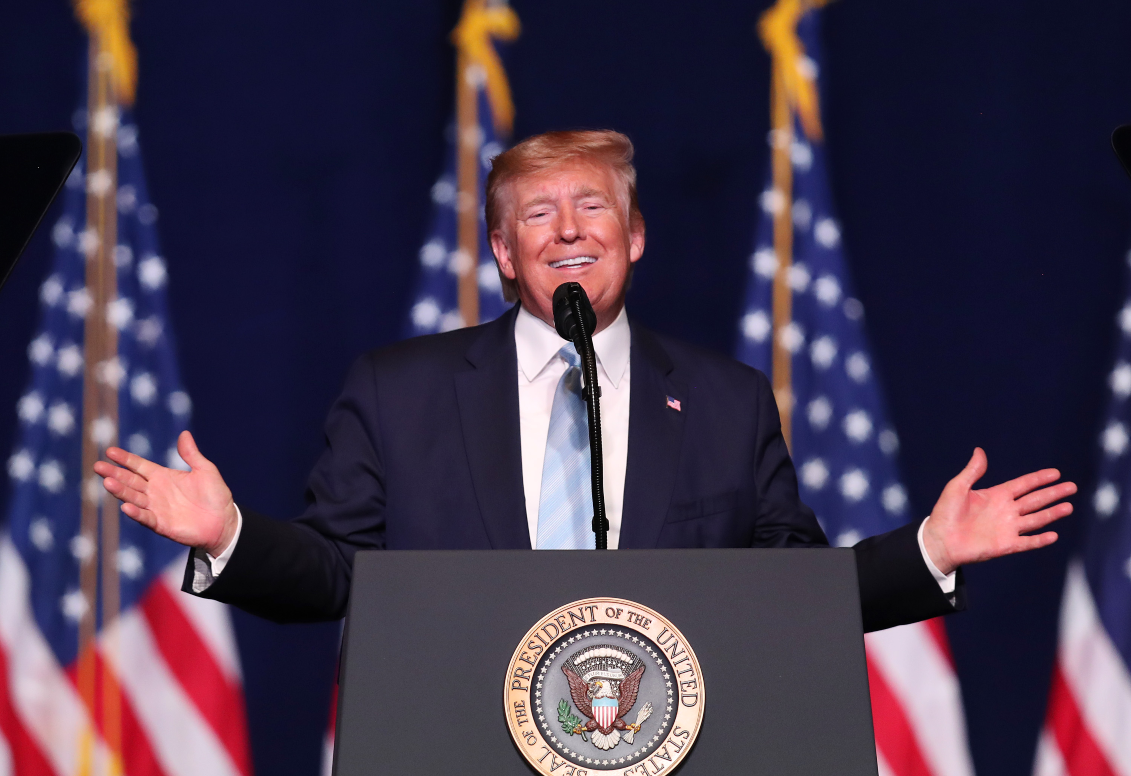
What are Trump's interests in Argentinean steel?
At the end of last year, Trump announced new tariffs on Argentine steel, which have not yet been enforced. Understanding these measures requires several…
On December 2, 2019, President Donald J. Trump announced that he would impose new tariffs on Argentine and Brazilian steel under the argument that South American countries would be intentionally devaluing their currency, which would be detrimental to the U.S. metallurgical industry.
Brazil and Argentina have been presiding over a massive devaluation of their currencies. which is not good for our farmers. Therefore, effective immediately, I will restore the Tariffs on all Steel & Aluminum that is shipped into the U.S. from those countries. The Federal....
— Donald J. Trump (@realDonaldTrump) December 2, 2019
Although in his tweet he announced that the tariffs would be effective immediately, he has not yet stated how high they would be for Argentina (in Brazil's case he retracted it). A complex reading is needed to see all the possible implications for the imposition of these tariffs.
One of the interpretations, in view of this year's presidential elections, is that it is an apparently protectionist measure of US industry, but in reality aimed at winning over voters. This is because the main country from which the United States imports steel is Canada. The import of iron (steel is iron with a higher carbon content) that the United States made from Argentine iron did not reach 1%, as of 2017. In contrast, also in 2017, Argentina exported a very high percentage of its steel production to the US, which could reach 45% for some products.
However, the real impact that such a small protectionist measure can have on an economy the size of the United States is one thing, and the impression it leaves on the electorate, possibly much greater, is another.
From this perspective, the imposition of tariffs would correspond to an electoral strategy.

To see the other side of the coin, you need to go back to 2012 to begin to understand the conflicts of interest that Trump has in Argentina. On December 2 of that year, the partnership between Donald Trump and the great Argentine construction company YY Devolpment Group was made public. Together they embarked on the construction of the Trump Tower in Punta del Este, a huge project with a cost of 120 million dollars.
Around the same time, they began planning the construction of another project in Buenos Aires, in front of the obelisk. This project would have a cost of 150 million dollars, however, the construction licenses were delayed.
In 2016, when Trump took office, there was a resounding incident. When Trump's victory in the elections was announced, the then president of Argentina, Mauricio Macri, had to call him to congratulate him. This gesture, which in principle is of protocol, had the aggravating factor that in the past there had been friction between the two in the real estate business. Therefore, this call would have the strategic purpose of softening the personal relations between the two. According to what has been reported by various media, in this call Trump told Macri that he was wanting for that 150 million dollars project, to which Macri would have responded that foreign investment was welcome. The incident was denied without major significance.
Whether the mention during the call was true or not, on December 27, 2017 the company DTTM OPERATIONS LLC applied for the construction license, under the representation of OBLIGADO & CIA, an Argentine law firm. DTT OPERATIONS controls dozens of trademarks owned by Donald Trump.
RELATED CONTENT
On March 1, 2018 President Trump announced that he would impose a 25% tariff on all steel importers into the United States with the intention of protecting the domestic industry. Two months later, on May 1, both the U.S. and Argentine governments announced that they had reached an agreement in which Argentina would be exempt from tariffs in exchange for reducing the volume of steel exported to the U.S. This normalized the situation until 2019.
On November 6, 2019, DTTM OPERATIONS LLC. obtained the construction license it had applied for two years earlier. On December 2, President Trump announced that he would impose tariffs on Argentine and Brazilian steel, as South American countries would be manipulating their currencies in order to devalue them and make their products more attractive to the market.
The Argentine peso had a 38% devaluation throughout 2019, but contrary to Trump's claims, the Argentine government made efforts to control inflation, such as imposing restrictions on the purchase of foreign currency and buying Argentine pesos abroad, in an attempt to increase their value.
On December 21, it was made public that Trump had decided not to impose tariffs on Brazilian steel. However, in relation to Argentine steel, this has not been made public, so it can be assumed that the measure is still in place, even though it has not yet come into effect.
As noted above, the impact of this measure would be much greater on the Argentine economy than on the United States economy. Argentine industry has already suffered the blows of its troubled economy. According to data from the Argentine Chamber of Steel, between 2018 and 2019, steel production fell by 16.33%. The reduction in steel production would be related to the deceleration of two other important economic sectors: the automotive and construction industries.
If the demand for steel in Argentina is reduced, both for domestic and international trade reasons, the price will tend to fall. Consequently, so would the costs of building the new Trump Tower in Buenos Aires and the profits for the builders would increase.
Time will tell if this second possibility is true, but the signs are there.











LEAVE A COMMENT:
Join the discussion! Leave a comment.